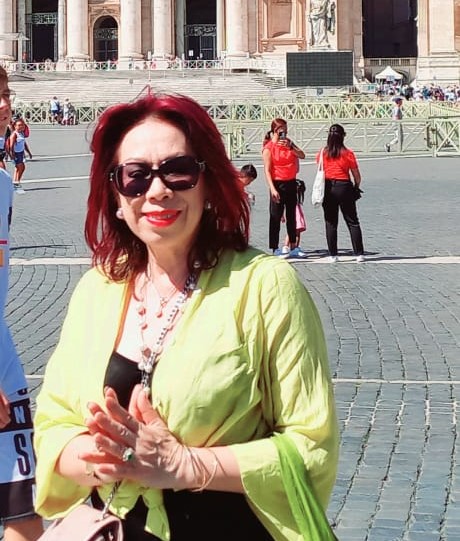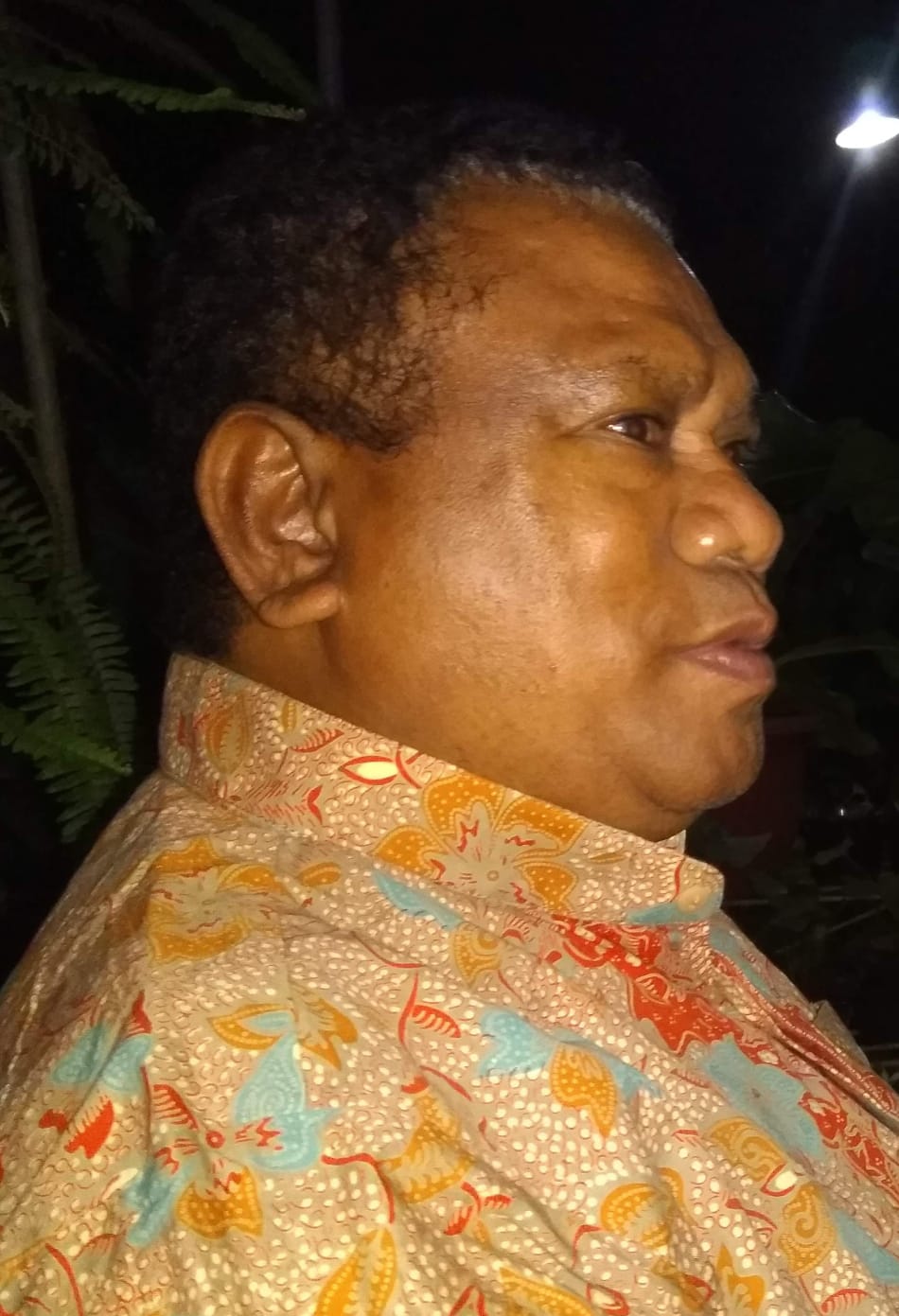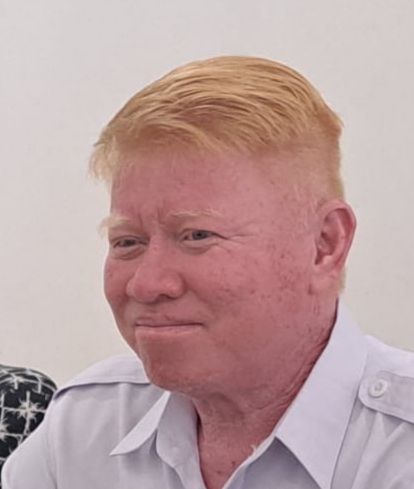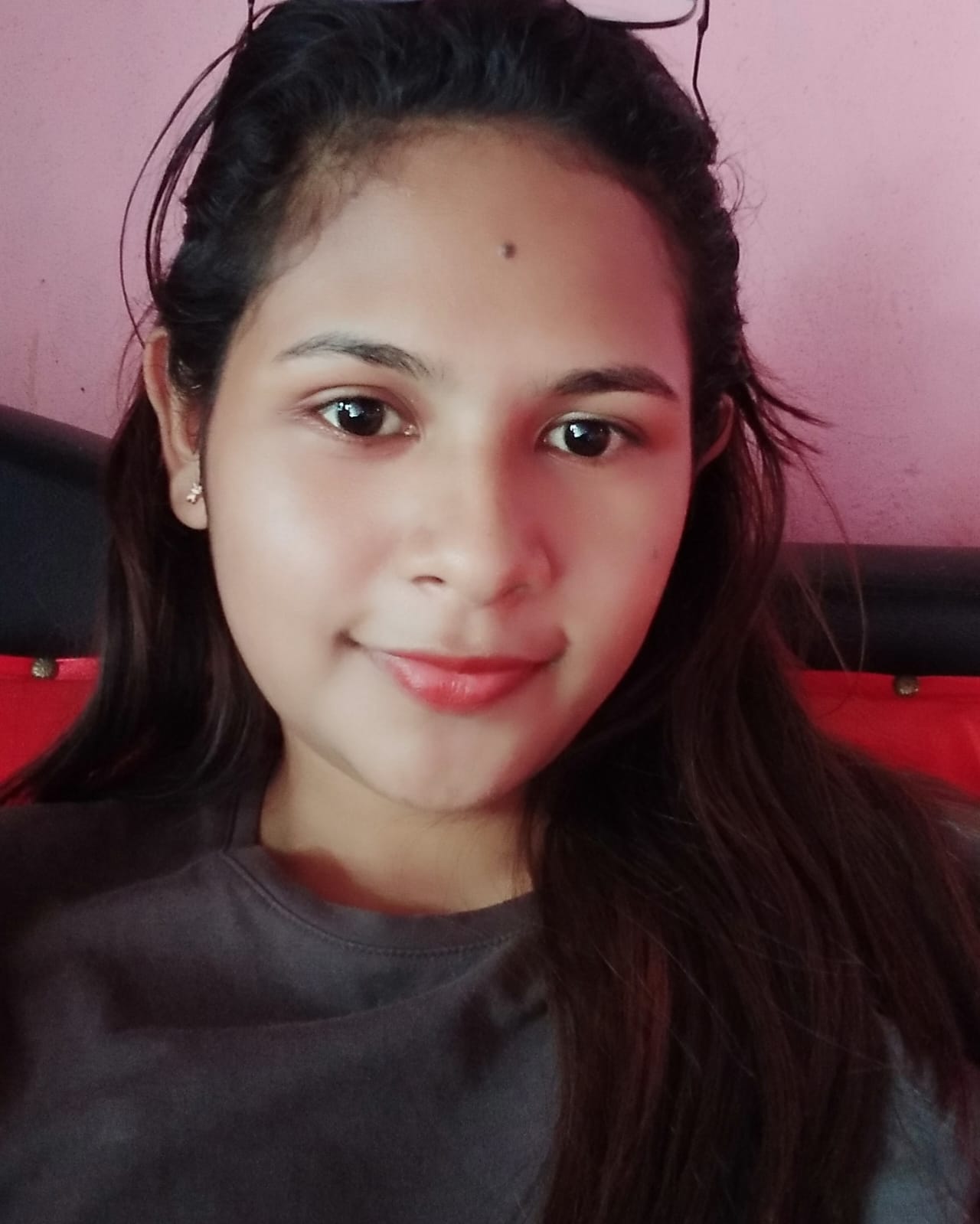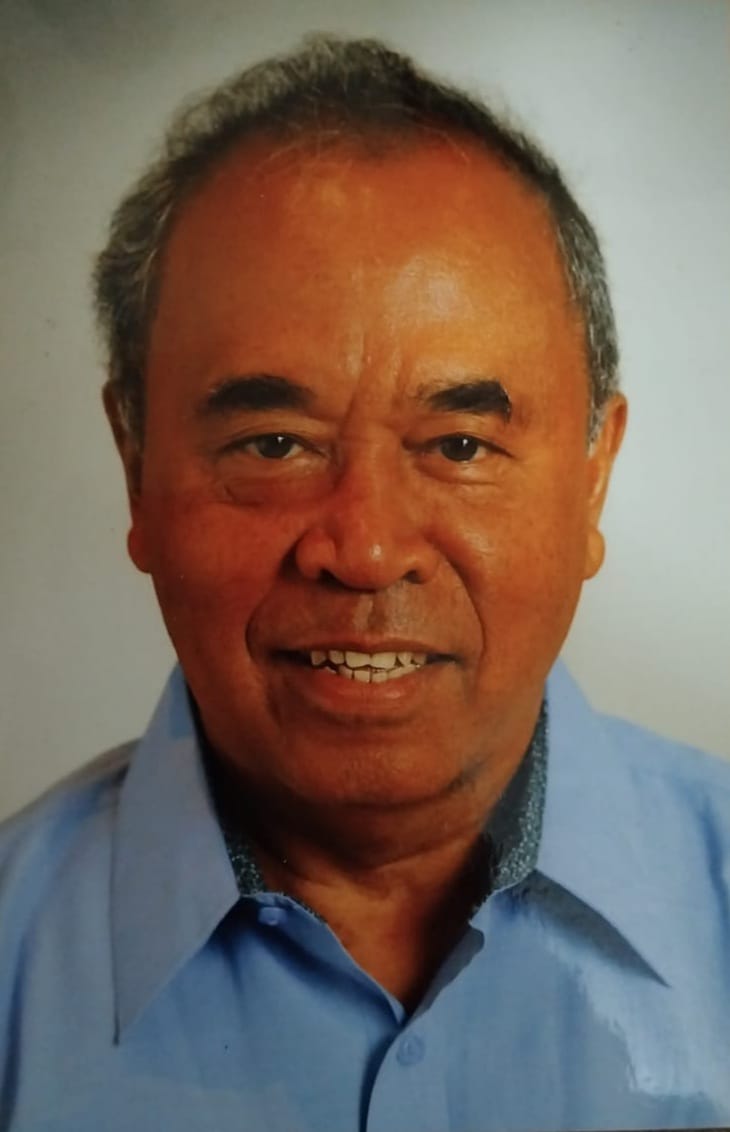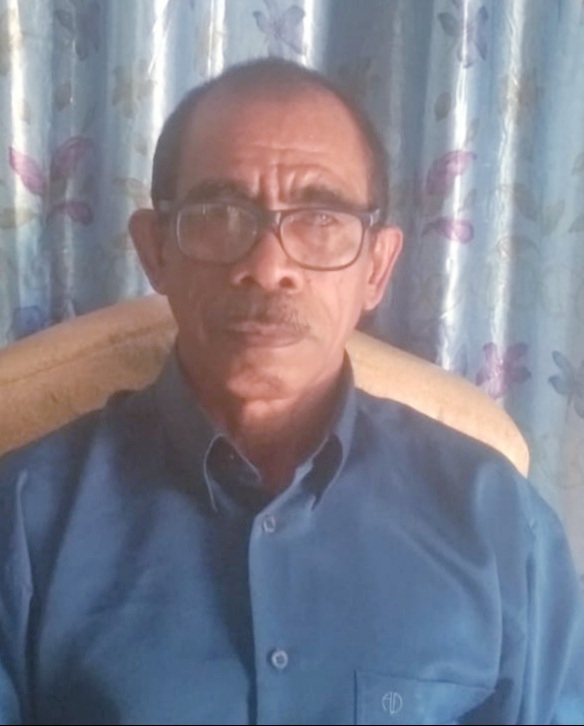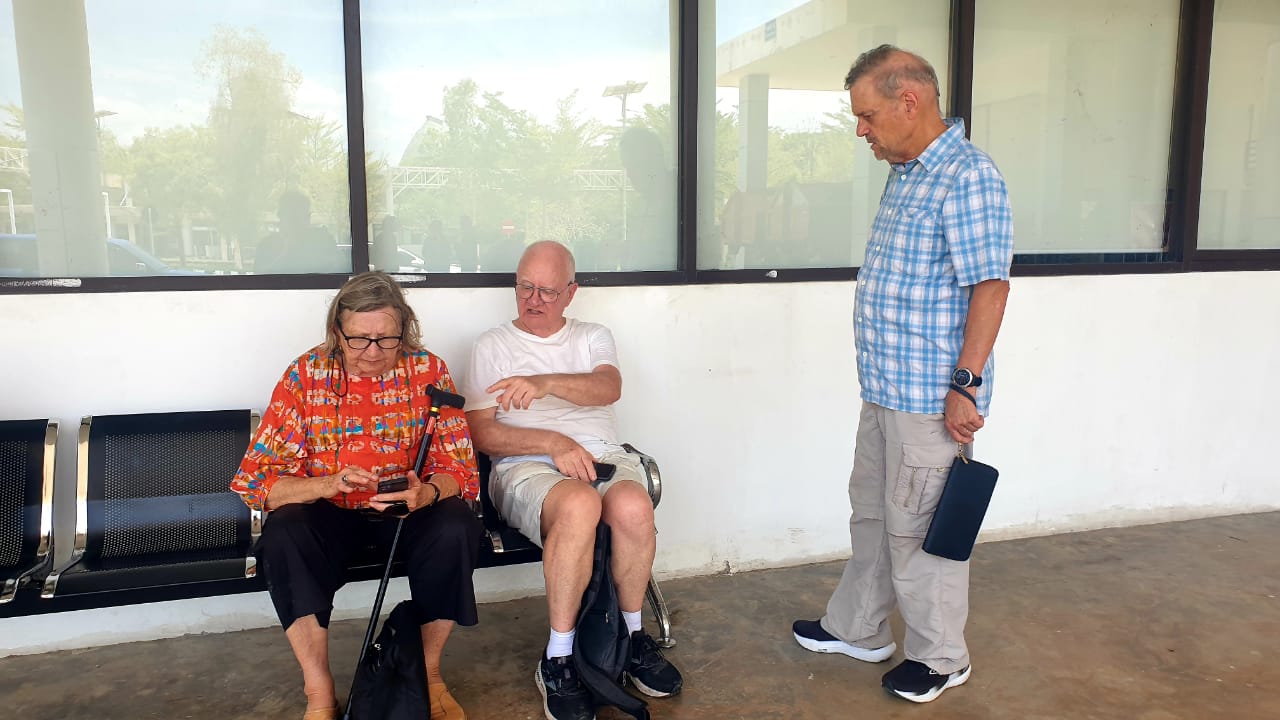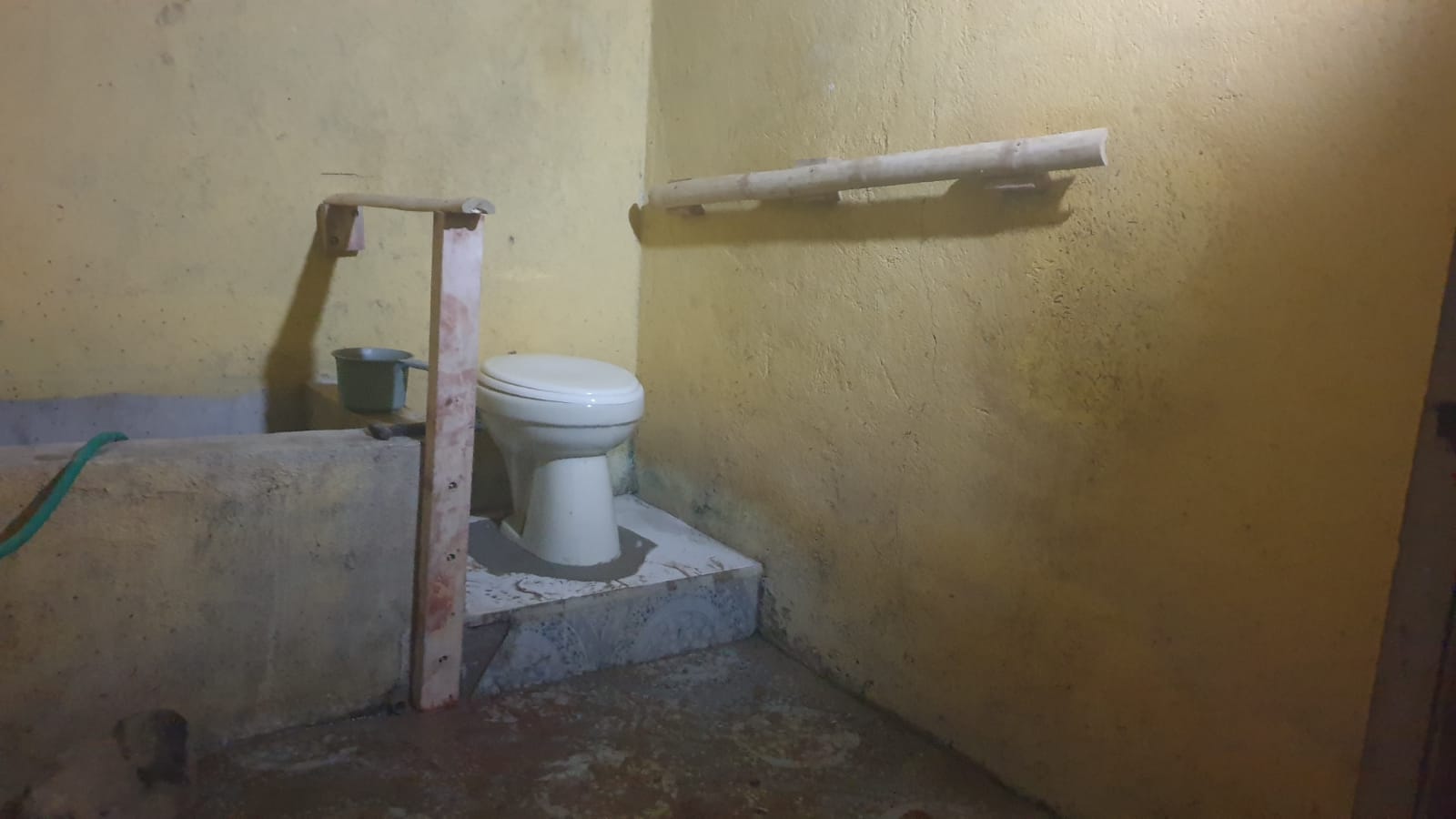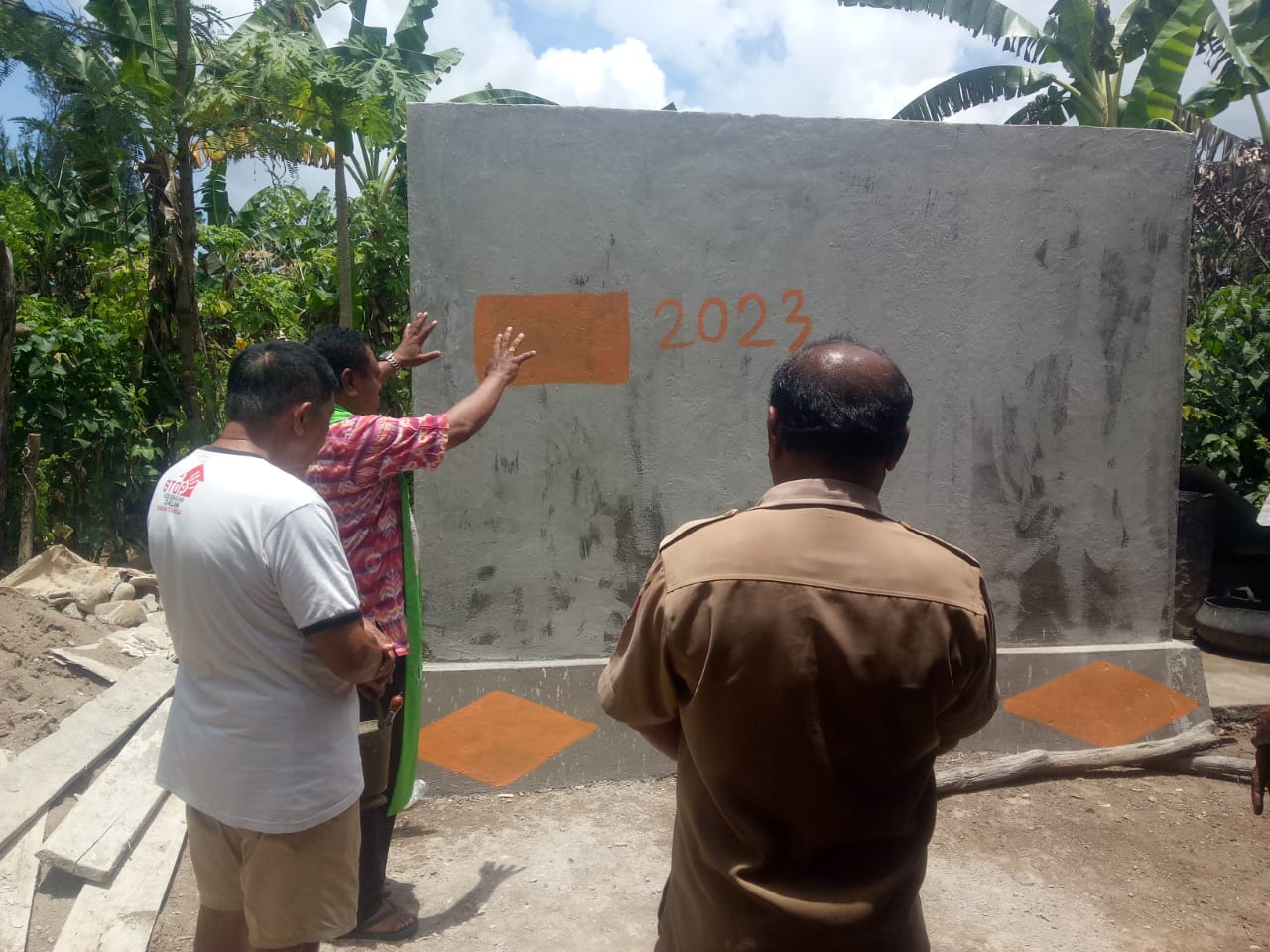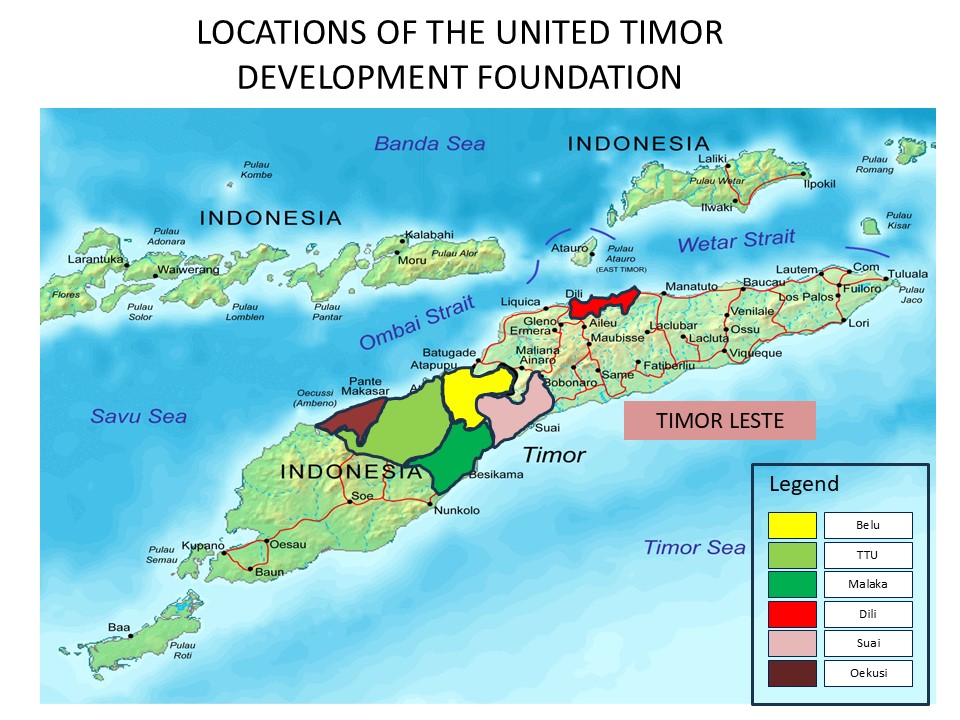Get To Know Us
The UNITED TIMOR DEVELOPMENT FOUNDATION* (UTDF), is an Indonesian-based non-profit organization based in Atambua, Belu District, NTT, Indonesia. Founded in 2023, UTDF honours the 2022 committment and vision of Colin (deceased DEc 2022) and Ria of responding to requests for development assistance from communities in West Timor in the Districts of Belu, Malaka and North Central Timor. Activites extended to Timor Leste (TLE) in Dili, Suai and Oekusi n March 2025.
Dr. Ria Gondorwarisito, Chair of UTDF, together with Father John Naihati (Head UTDF) and field staff, have responded to community identified needs in Belu District, East Nusa Tenggara, Indonesia. In March 2025, they reponsed to requests for assistance from poor communities in the outskirts of Dili, Suai and Oekusi in Timor L'Este.
Funding from the United Nations Women's Guild (UNWG), Rome. has enabled the building of 7 ferro-cement water tanks and 7 disability-accessible (GEDSI-Gender Equity Disability Social Inclusion) toilets. By July 2025 with other donation,s the UTDF was a le to assist communities to build 120 water tanks and 20 disability toilets in the three Districts, and Timor L'este.
-
- *(previously known as the Colin Barlow Ria Foundation)
